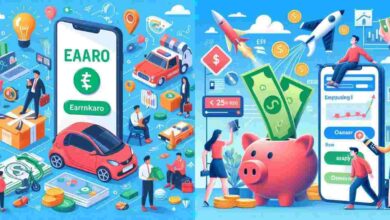What skills are needed for affiliate marketing

Affiliate marketing requires a combination of skills to be successful in promoting and selling products or services on behalf of a merchant. Here are some essential skills needed for affiliate marketing:
Digital Marketing Knowledge:
Digital marketing knowledge is a fundamental and dynamic skill set that encompasses various online marketing techniques used to promote products, services, or brands in the digital realm. It involves a deep understanding of key concepts such as Search Engine Optimization (SEO), which optimizes websites to rank higher in search engine results and attract organic traffic.
Content marketing is another crucial aspect, focusing on creating valuable and engaging content to establish authority, build relationships with the audience, and drive conversions. Social media marketing involves leveraging platforms like Facebook, Instagram, and Twitter to interact with potential customers, raise brand awareness, and drive website traffic. Email marketing is a powerful tool for nurturing leads and maintaining relationships with customers through personalized and targeted messages.
Additionally, digital marketing incorporates paid advertising, utilizing platforms like Google Ads and social media ads to reach specific audiences and increase visibility. Analytical skills are also essential, as marketers need to measure and interpret data to optimize campaigns and make data-driven decisions. With the ever-changing digital landscape, staying up-to-date with the latest trends and tools is crucial for success in the competitive world of digital marketing.
Content Creation:
Content creation is the art and process of producing valuable, engaging, and relevant materials to connect with and captivate a target audience. It encompasses a wide range of mediums, including written articles, blog posts, videos, infographics, podcasts, and more. Effective content creation starts with understanding the target audience’s needs, interests, and pain points, enabling the content creator to tailor messages that resonate with them.
High-quality content educates, entertains, or solves problems for the audience, positioning the creator as an authoritative and trustworthy source. It also plays a crucial role in search engine optimization (SEO), as search engines value valuable and relevant content, rewarding it with higher rankings in search results.
Content creation is an ongoing process that requires creativity, research, and consistent effort to maintain audience engagement and loyalty. Whether it’s building brand awareness, driving website traffic, or generating leads, content creation is a powerful tool that lies at the core of digital marketing strategies, fostering meaningful connections between businesses and their customers.
Sales and Persuasion:
Sales and persuasion are essential aspects of marketing and communication that aim to influence people’s decisions and behaviors. Sales is the process of convincing and guiding potential customers to make a purchase, sign up for a service, or take a desired action.
It involves identifying customer needs, addressing their concerns, and demonstrating how a product or service can fulfill those needs effectively. Effective sales techniques focus on building relationships with customers, understanding their pain points, and presenting solutions that meet their specific requirements.
On the other hand, persuasion is the art of convincing others to adopt a particular viewpoint or take a specific course of action. It relies on appealing to emotions, logic, and credibility to sway opinions and encourage action. Persuasion techniques may involve storytelling, social proof, using authority figures or influencers, and creating a sense of urgency.
Both sales and persuasion rely on effective communication, active listening, empathy, and the ability to tailor messages to resonate with the target audience. When used ethically and responsibly, sales and persuasion can drive positive outcomes, fostering mutually beneficial relationships between businesses and their customers.
Analytics and Data Analysis:
Analytics and data analysis are integral components of modern business strategies, providing valuable insights and informing decision-making processes. Analytics involves the collection, interpretation, and visualization of data to understand patterns, trends, and performance metrics related to various aspects of a business or marketing campaign.
It encompasses both quantitative and qualitative data, gathered from diverse sources such as website traffic, social media interactions, customer behavior, sales figures, and more. Data analysis involves using statistical and analytical techniques to extract meaningful information from the data, uncovering valuable insights that can drive strategic actions and optimizations.
Through data analysis, businesses can identify areas of strength, weaknesses, and opportunities for growth. It enables marketers to measure the effectiveness of their campaigns, understand customer preferences, and target specific audience segments more accurately. Additionally, data analysis plays a pivotal role in optimizing processes, enhancing efficiency, and predicting future trends.
Utilizing data-driven insights empowers businesses to make informed decisions, refine strategies, and achieve better outcomes, ultimately leading to improved performance and a competitive advantage in the market.
Audience Targeting:
Audience targeting is a strategic marketing approach that focuses on identifying and reaching specific groups of individuals or segments within a broader market who are most likely to be interested in a product or service. It involves gathering and analyzing data about potential customers, including demographics, interests, behaviors, and preferences, to create well-defined audience profiles.
By understanding the needs and characteristics of these target audiences, marketers can tailor their messages and promotional efforts to resonate with them effectively. Audience targeting helps optimize marketing resources by directing efforts towards those who are most likely to convert into customers, reducing wastage of time and resources on irrelevant audiences.
This approach is commonly used in various digital marketing channels, such as social media advertising, search engine marketing, email marketing, and content creation. By delivering personalized and relevant content to specific audience segments, businesses can establish stronger connections, foster brand loyalty, and drive higher engagement and conversion rates, ultimately leading to more successful and cost-efficient marketing campaigns.
Networking and Relationship Building:
Networking and relationship building are essential elements in both personal and professional spheres that involve establishing and nurturing connections with individuals or groups. In the business context, networking refers to the process of actively engaging with others, such as colleagues, clients, industry peers, or potential partners, to exchange information, ideas, and opportunities.
It often occurs through various platforms like business events, conferences, social media, and online communities. Relationship building, on the other hand, focuses on cultivating meaningful, long-term connections with people based on trust, mutual understanding, and shared interests. Building strong relationships is crucial in fostering collaboration, gaining support, and creating a positive reputation.
Both networking and relationship building are instrumental in career advancement and business growth. They open doors to new opportunities, partnerships, and valuable insights. By maintaining genuine and authentic interactions, individuals and businesses can establish a network of supportive contacts, leading to a richer and more fulfilling professional and personal life.
Tech Savviness:
Tech savviness refers to the level of proficiency and familiarity with technology and digital tools. In today’s digitally driven world, being tech-savvy is increasingly important, both in personal and professional contexts. A tech-savvy individual possesses the ability to understand, navigate, and effectively use various technological devices, software applications, and online platforms.
This includes computers, smartphones, tablets, operating systems, productivity tools, and communication apps. Tech-savvy individuals are quick learners and can adapt to new technologies and advancements, staying up-to-date with the latest trends and innovations. In a professional setting, tech savviness is highly valued as it enhances productivity, communication, and problem-solving capabilities. Tech-savvy employees can leverage digital tools to streamline workflows, analyze data, and collaborate with remote teams seamlessly.
Additionally, being tech-savvy opens up opportunities for learning and growth, as technology continues to play an integral role in virtually every industry. Whether it’s for personal use or professional development, being tech-savvy empowers individuals to harness the full potential of technology, enabling them to thrive in today’s digital age.
Time Management:
Time management is the art and practice of effectively planning, organizing, and prioritizing tasks and activities to make the most efficient use of one’s time. It is a crucial skill that allows individuals to accomplish their goals, meet deadlines, and maintain a healthy work-life balance.
Effective time management involves identifying priorities, breaking down larger tasks into smaller, manageable steps, and allocating appropriate time to each activity. It also requires setting realistic and achievable goals, eliminating distractions, and staying focused on the task at hand. Time management is not just about working harder but also about working smarter, optimizing productivity, and reducing stress.
By managing time effectively, individuals can maximize productivity, improve decision-making, and reduce procrastination. This skill is especially valuable in today’s fast-paced world, where demands on our time can be overwhelming. With proper time management, individuals can create more opportunities for personal growth, learning, and leisure, leading to a more balanced and fulfilling life.
Compliance and Legal Awareness:
Compliance and legal awareness are critical aspects of business operations and personal conduct, ensuring adherence to laws, regulations, and ethical standards. Compliance refers to the act of following internal policies and external laws relevant to an organization’s industry or activities. It involves implementing procedures, guidelines, and controls to prevent legal violations, fraud, and misconduct.
Compliance programs help businesses maintain transparency, mitigate risks, and protect their reputation. Legal awareness, on the other hand, pertains to having knowledge of applicable laws and regulations, enabling individuals and organizations to make informed decisions and act responsibly within the boundaries of the law.
It involves understanding rights, responsibilities, and potential liabilities in various contexts, such as contracts, data protection, intellectual property, employment, and consumer protection. Both compliance and legal awareness are essential in preventing legal issues and liabilities, fostering a culture of integrity and responsibility. In businesses, compliance and legal awareness contribute to sustainable growth, stakeholder trust, and long-term success.
On a personal level, being legally aware helps individuals protect their rights and navigate legal matters effectively, promoting ethical behavior and respect for the law within society.
Adaptability and Continuous Learning:
Adaptability and continuous learning are two interconnected qualities that are essential for personal and professional growth in an ever-changing world. Adaptability refers to the ability to adjust to new circumstances, challenges, and environments with ease. It involves being open to change, embracing uncertainty, and remaining resilient in the face of adversity.
Being adaptable allows individuals to respond effectively to unexpected situations, seize opportunities, and thrive in dynamic and fast-paced environments. Continuous learning, on the other hand, is the ongoing process of acquiring new knowledge, skills, and insights throughout life. It involves seeking out new information, staying curious, and actively pursuing self-improvement.
Embracing continuous learning enables individuals to stay relevant, stay ahead of industry trends, and become experts in their field. Together, adaptability and continuous learning form a powerful combination that empowers individuals to overcome challenges, embrace innovation, and reach their full potential.
Those who possess these qualities are better equipped to navigate change, seize new opportunities, and achieve long-term success in their personal and professional endeavors. In a world where advancements in technology and knowledge are constant, adaptability and continuous learning have become indispensable traits for thriving in the modern landscape.
Remember that becoming a successful affiliate marketer takes time and dedication. Continuous learning and experimentation will help you refine your skills and grow your affiliate business over time.




